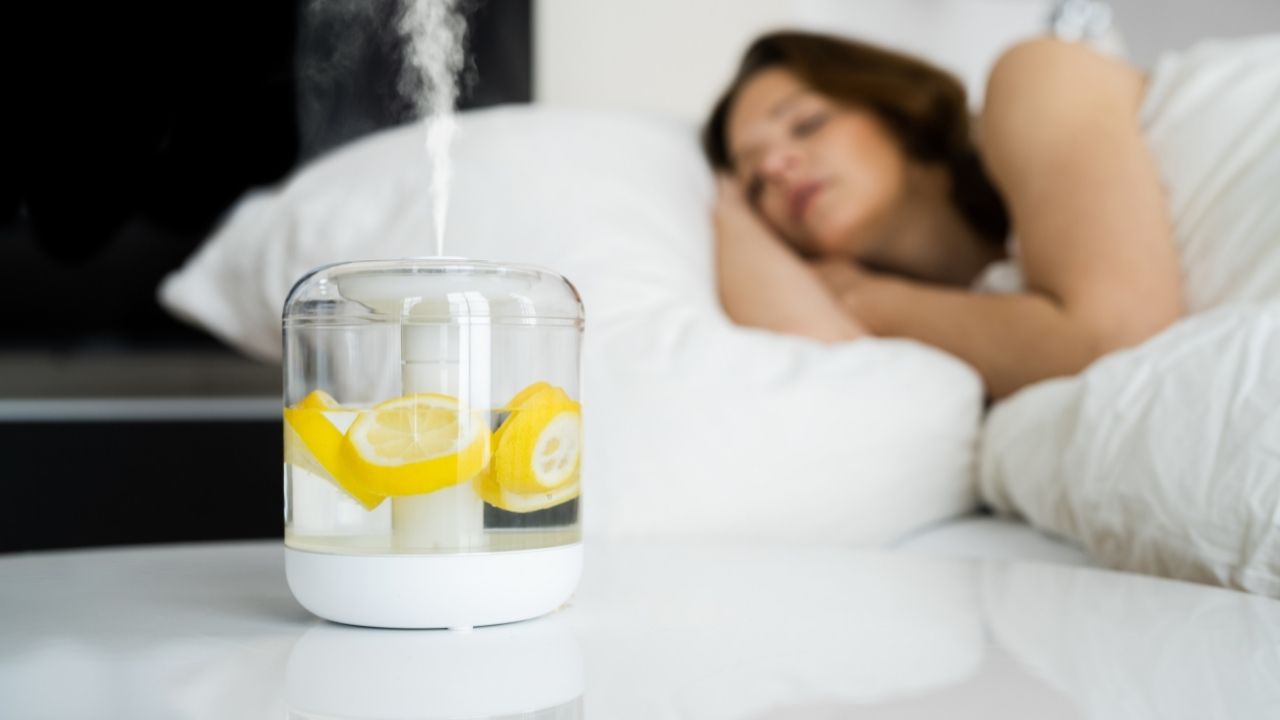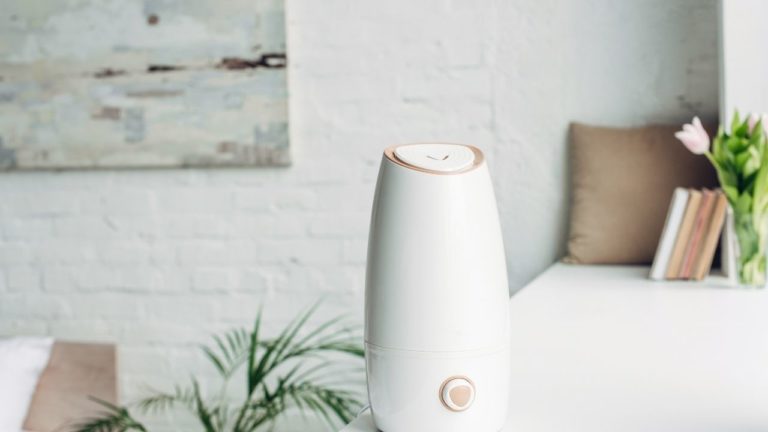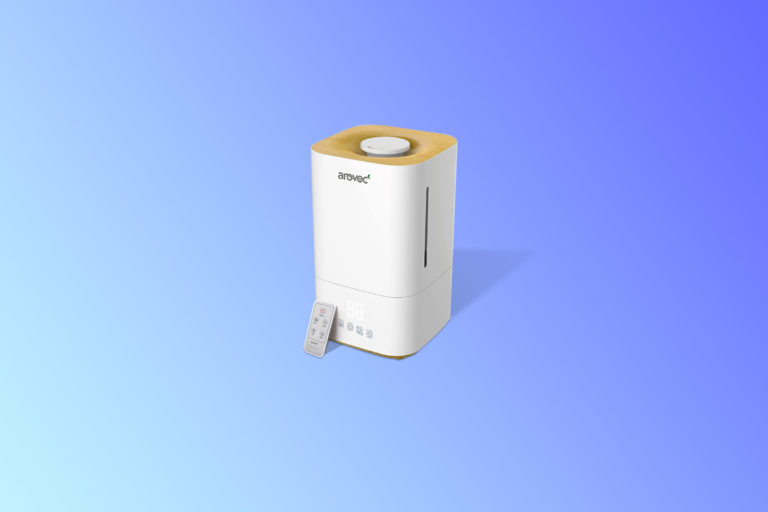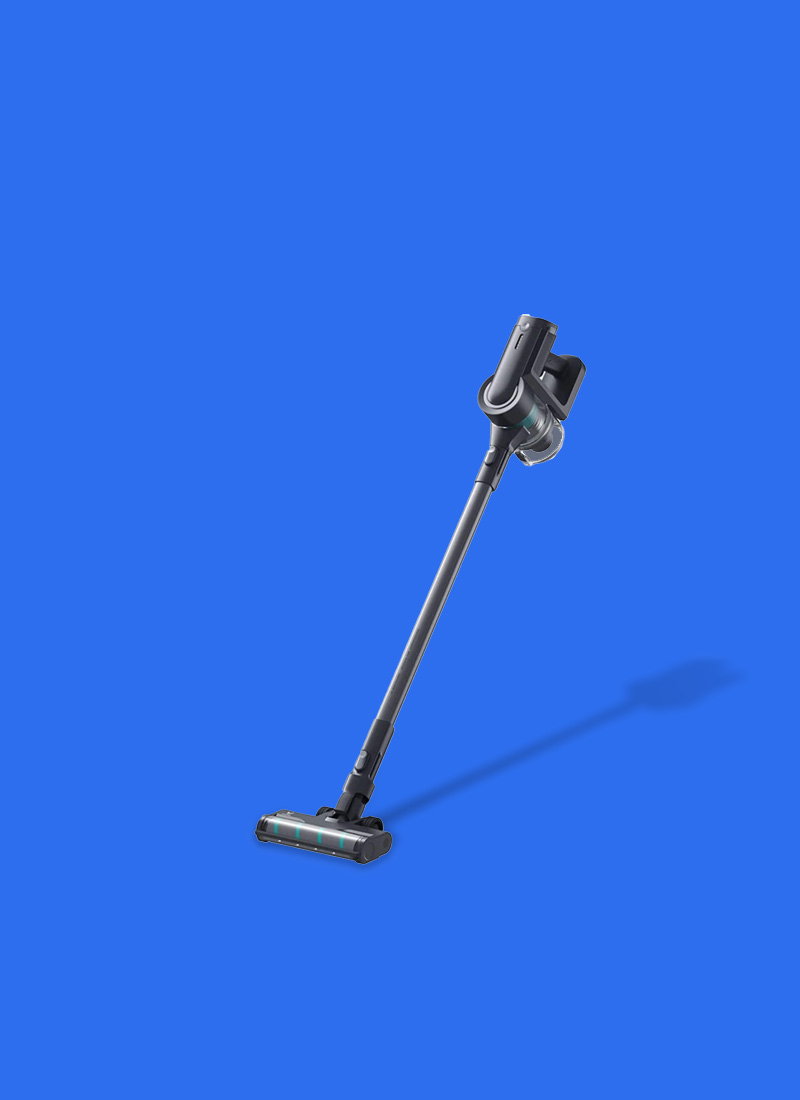ⓘ We are reader-supported and may earn a small commission at no additional cost to you if a purchase is made through one of our links.
Find out if humidifiers actually help relieve the symptoms of allergies, colds, and other respiratory disorders. We’ll also tackle the link between dry air and breathing problems, and how humidifiers can ease conditions like cough and congestion.
If you don’t have time to read the full article, click on the links to skip to that section:
Dry Air, Respiratory Health, and Humidifiers
Australians spend as much as 90% of their lives indoors. Since we spend so much time inside, indoor air quality can have a significant impact on our health.
Experts recommend keeping indoor humidity levels at 30% to 50%. Lower than that, and dry air can cause a host of problems.
Dry air contributes to inflammation in the respiratory tract, causing symptoms like irritation of the eyes, nose, throat and sinuses. It worsens respiratory conditions like cough, colds, allergies, flu, asthma and sinusitis. And more serious conditions, like bronchitis and pneumonia, can be brought on completely.
To combat the effects of dry air, many turn to humidifiers. But do these electronic appliances actually make a noticeable difference in respiratory health?
If you’re interested in buying a humidifier, then click here.
Can humidifiers help with colds and allergies?

While humidifiers cannot cure conditions like colds or allergies, they can ease symptoms like congestion, runny nose and painful sinuses. This triggers a domino effect in the body – as symptoms ease, your body’s natural healing abilities kick in, allowing you to recover faster.
How humidifiers work is simple: they increase water vapor in a room through different methods like evaporation, steam, or ultrasonic vibration. The moist air makes it easier to breathe and soothes dry, irritated nasal and sinus passages.
Humidifiers also provide added relief for those with breathing disorders. The moist air can thin mucus, making it less likely to block the respiratory system.
Is a humidifier good for a cough?
A dry cough is the body’s way of clearing irritants from the throat, lungs, and airways. It’s exhausting, and breathing in dry air only makes it worse.
A humidifier can ease a dry cough by moisturizing airway passages and loosening mucus. You may also find it easier to sleep with a humidifier, and this can lessen the severity of coughing fits for both children and adults.
Is a humidifier good for congestion?
Some of the most common types of breathing congestion are a stuffy nose, sinus pressure, and chest congestion. Similar to cough, dry air can also make congestion more distressing.
A humidifier can help relieve congestion symptoms by thinning mucus, encouraging drainage, and making it easier to breathe thanks to moist air.
Will a humidifier help with allergies?
Let’s go a bit deeper into this one. Indoor air contains many things that can trigger allergies. Pollen, dust mites, mildew, and pet dander are among them. Symptoms like sneezing, runny nose, itchy eyes, coughing and difficulty breathing are the body’s way of detoxifying itself.
Dry air makes an allergy flare-up more difficult to deal with. A humidifier can provide relief by moisturising dry sinuses, eyes, throat, and airways. This, in turn, helps the mucous membranes to function properly, which eases the allergy symptoms above.
Can you use a humidifier if you have asthma?
Yes, with a few caveats. Asthma sufferers should use a humidifier only when they are feeling congested or have difficulty breathing.
They must also carefully monitor the humidity in their home to make sure it’s at a healthy level. Too much moisture can escalate dust mites and lead to mold growth.
Finally, clean your humidifier regularly to avoid introducing contaminants into the air.
Aside from this, humidifiers can be helpful to people with asthma, similar to how it supports allergy relief.
Which is better for allergies: humidifier or dehumidifier?
It highly depends on why you have allergies.
An environment that’s too humid can cause mold to grow, which can worsen allergies. It can also make it hard to breathe due to the excess moisture in the air. In this case, a dehumidifier would be an ideal solution because it removes moisture.
Now, if the cause is dry air, then a humidifier is your solution.
Does sleeping with a humidifier help with a cold?

Yes, keeping a humidifier running overnight can help mitigate cold symptoms by keeping nasal and air passages moist. This eases the severity of coughing, congestion, runny nose, and stuffiness. People with nasal congestion often find it easier to breathe when there’s added moisture in the room.
Does a humidifier help with dry eyes?
Dry eyes are an extremely common problem. They occur when you don’t produce enough tears, or your tears evaporate too quickly. Symptoms include redness, eye discomfort, dry skin around the eyes, blurred vision, and itchiness.
A humidifier can ease these symptoms. The moist air keeps the mucous membranes in your eyes healthy and hydrated.
For people with extremely dry eyes, a humidifier can be a lifesaver.
Do humidifiers increase oxygen?
No, a humidifier will not increase the oxygen in a room. If you’re worried about not getting enough oxygen, that’s a sign of serious medical problems. It needs to be addressed by a doctor ASAP.
Do humidifiers purify the air?
No, humidifiers are not designed for air purification. They don’t remove contaminants like dust, mold spores, viruses, bacteria, and other harmful substances.
To clean the air, use a filter or an air purifier in addition to regularly cleaning the room itself.
Is it bad to sleep with a humidifier?
As long as you follow your humidifier’s instructions and clean regularly, sleeping with one is generally safe.
You should also check the manual of your humidifier to see if it has any warnings or limitations.
Important: Keep Your Humidifier Clean
To ensure your humidifier works as intended, it’s important to change the water and clean it regularly.
Otherwise, you risk contaminating the air in your home with bacteria and mold.
Follow the manufacturer’s instructions for cleaning to avoid damaging it. Also, remember to refill the machine whenever the water level drops too low. This ensures you don’t run out of moisture when you need it most.
If you do all this regularly, your humidifier will give you years of reliable service.
Conclusion
If you’re looking for a way to improve air quality and ease breathing conditions like colds, allergies, cough, and congestion, you should consider buying a humidifier.
Humidifiers are not a cure-all, but they can be an effective part of creating a safer and healthier home.





